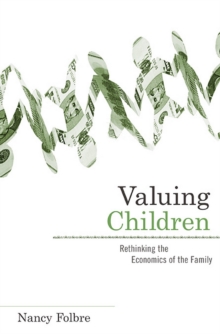
Stand by Me : The Risks and Rewards of Mentoring Today's Youth PDF
by Rhodes Jean E. Rhodes
Part of the The Family and Public Policy series
Description
A child at loose ends needs help, and someone steps in--a Big Brother, a Big Sister, a mentor from the growing ranks of volunteers offering their time and guidance to more than two million American adolescents. Does it help? How effective are mentoring programs, and how do they work? Are there pitfalls, and if so, what are they? Such questions, ever more pressing as youth mentoring initiatives expand their reach at a breakneck pace, have occupied Jean Rhodes for more than a decade. In this provocative, thoroughly researched, and lucidly written book, Rhodes offers readers the benefit of the latest findings in this burgeoning field, including those from her own extensive, groundbreaking studies.
Outlining a model of youth mentoring that will prove invaluable to the many administrators, caseworkers, volunteers, and researchers who seek reliable information and practical guidance, Stand by Me describes the extraordinary potential that exists in such relationships, and discloses the ways in which nonparent adults are uniquely positioned to encourage adolescent development. Yet the book also exposes a rarely acknowledged risk: unsuccessful mentoring relationships--always a danger when, in a rush to form matches, mentors are dispatched with more enthusiasm than understanding and preparation--can actually harm at-risk youth. Vulnerable children, Rhodes demonstrates, are better left alone than paired with mentors who cannot hold up their end of the relationships.
Drawing on work in the fields of psychology and personal relations, Rhodes provides concrete suggestions for improving mentoring programs and creating effective, enduring mentoring relationships with youth.
Information
-
Download - Immediately Available
- Format:PDF
- Pages:176 pages
- Publisher:Harvard University Press
- Publication Date:01/07/2009
- Category:
- ISBN:9780674042681
Other Formats
- EPUB from £41.60
Information
-
Download - Immediately Available
- Format:PDF
- Pages:176 pages
- Publisher:Harvard University Press
- Publication Date:01/07/2009
- Category:
- ISBN:9780674042681










